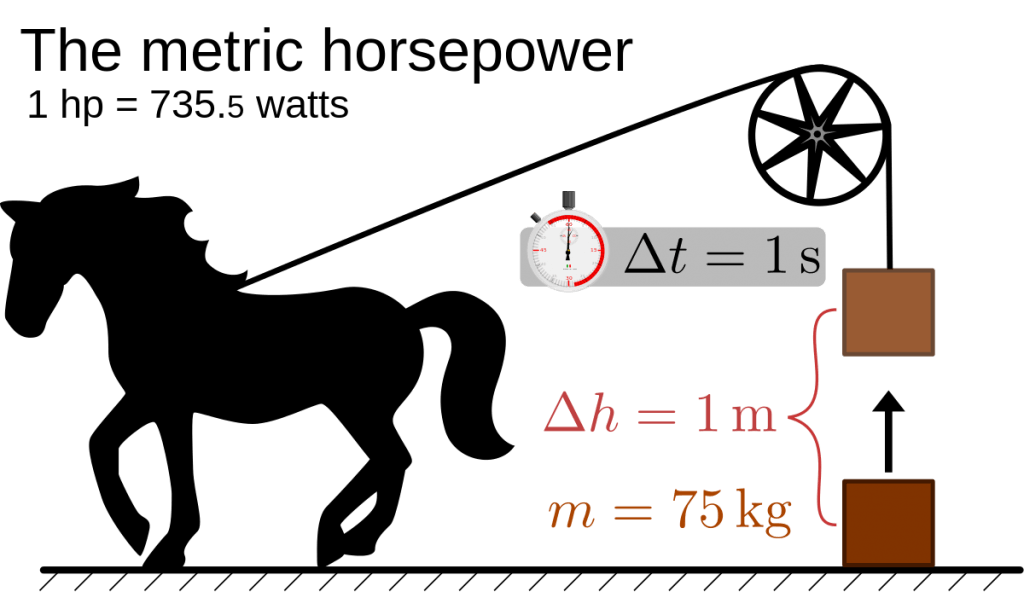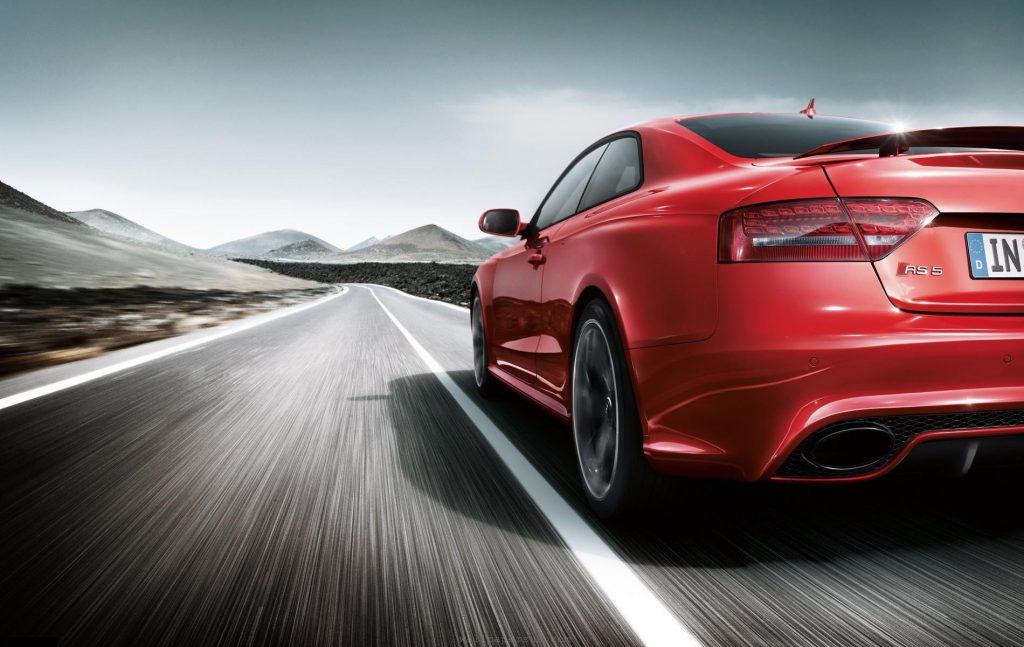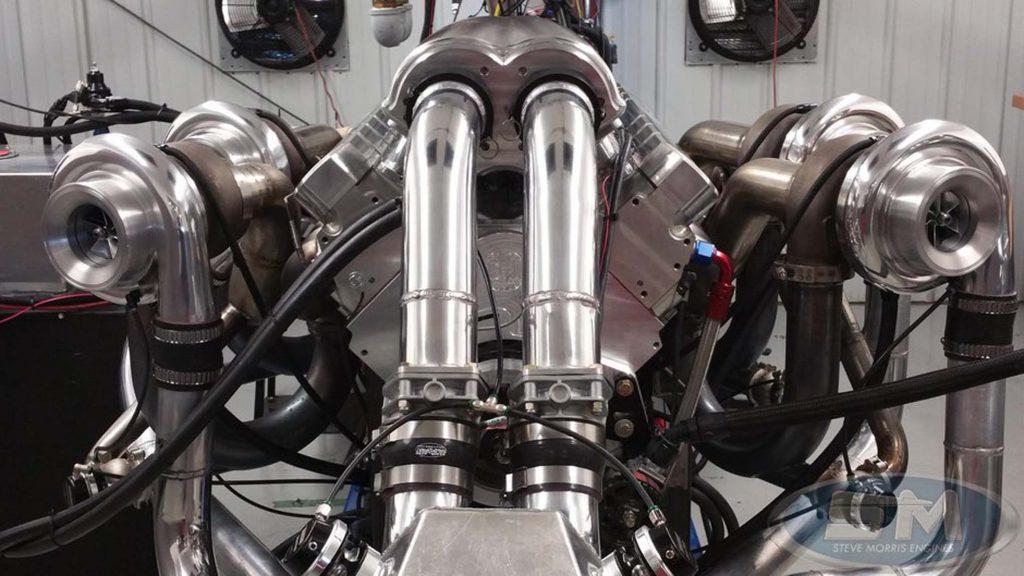One can imagine some horses scampering on the plains while stepping on a man. This is the first image that strikes one’s mind hearing the word ‘horsepower’. Do disregard this article and all others existing in your mind. horsepower in cars is a measurement, coined by engine James Watt. Its formula helps in calculating the potential of a car engine and other machinery.
Contents
What Is Horsepower In Cars?
Horsepower (hp) is a unit of measurement that is used to measure power in cars. One horsepower is equivalent to a horse lifting 75 kilograms by 1 meter in one second. In other words, it is 746 watts (Horsepower values range from 735 W to 746 W.
Among them, British horsepower is considered the most official and is widely used with the conversion value: 1 HP = 0.7457 kW = 746 W). James Watt – a Scottish engineer was the first person who compared the output of steam engines with the power of draft horses. He deemed that one horse could do 33,000 foot-pounds of work a day and it is useful as a consistent unit for measuring the power of a car engine.

In fact, the units horsepower (HP) and kW (kilowatts) can be quickly converted to each other using the following relative coefficients:
- In the UK: 1 HP = 0.7457 kW
- In France: 1 CV (horsepower) = 0.7355 kW
- 1 kW = 1.36 CV = 1.34 HP
Comparing Horsepower With Other Factors
The more power the car has, the better its acceleration – a strong factor in its overall performance. This is the reason why car marketing talks a lot about horsepower capacity of high-performance or best-class car models. However, one surely cannot ignore other factors as well. When driving a large or compact sedan, the compact car will run faster being lighter in weight.
Torque is another feature that affects the performance of a car. Its main motive is to measure the twisting force. Cars with high torque accelerate better from a spot and carry more strength for towing. The engine that shows high performance consists of powerful torque and horsepower in cars. Complementing each other, both specifications provide a well-balanced driving experience.
Horsepower Myths That People Still Believe
Horsepower is more important than torque

See more:
- The Reason Behind The Name Given To Horse Power
- Why Many Experts Consider This The Greatest Car Ever Made
Many people have been duped into believing myths that extreme horsepower numbers win not only bragging rights but also drag races. However, they should have praised the other one, torque.
Thanks to a ton of twists on tap to seamlessly feed onto top-end thrust, many cars such as the Chevy Camaro SS received a lot of notice from experts and customers. High horsepower doesn’t always make you fast. And Jay Leno claimed: “Horsepower sells cars, but torque wins the race”.
Cars with lower horsepower are of no good
Most people assume that lower-horsepower cars are not worth buying. This is just an illusion. Cars with high horsepower get a lot of attention. They look stylish, and expensive and are simply gorgeous and fun to drive. Manufacturers work constantly to ameliorate the quality of their horsepower to put competition in the automobile industry. In light of stylish and expensive cars with high horsepower, it’s important to discuss that cars with lower horsepower are worthy too.
Compact and midsize vehicles do not have high horsepower. They work fairly better without it. Modest power engines keep these cars popular because of their prices, fuel, safety, and efficiency. Thinking, what does horsepower mean to such cars?
Such cars do not only rely on horsepower instead, they offer distinct performance over high-horsepower cars. They may not achieve the highest speed in a fraction of a second but they are fun to drive because they are lightweight and agile.

The more horsepower, the better
Indubitably, cars with more horsepower satisfy buyers and are considered powerful in terms of performance. While horsepower in cars is important, it is certainly not the only factor to consider when purchasing a car. If speeding from zero to 60 miles in a fraction of a second is not important to you, there is a range of cars holding numerous other features to consider.
What’s the difference between torque and horsepower?
Torque is a complex definition that represents a rotating force produced by an engine’s crankshaft. The more torque an engine produces, the greater its ability to perform work. It’s quantified by the units pound-feet and Newton meters (Newton x meters). Horsepower is determined from torque because torque is easier to measure.
While power shows how “strong” and how fast the car is, the torque represents how long it will take to achieve that speed. The higher the torque is, the better the ability to pull, climb and cross terrain is. You can see this video below to get more information on the differences between torque and horsepower in cars?
How much horsepower does an average car have?
The horsepower varies from car to car and country to country. In general, a typical car in America has something around a 120-horsepower engine. A big SUV might have a 200-horsepower engine, and a small car might have only 70 horsepower. Read this article about the average car horsepower to know details of four cars’ average horsepower.
Does horsepower determine how fast a car is?
Horsepower is not the only factor affecting the car’s speed? Horsepower is a measure of the engine’s power output, specifically the rate at which work is done. In general, a car with a higher horsepower rating can accelerate more quickly and potentially achieve higher top speeds.
However, it’s important to note that other factors such as torque, weight, aerodynamics, gearing, and traction also play significant roles in determining a car’s speed and performance. We can take an example: What makes sports cars like the Toyota Supra, despite having less horsepower and torque, run faster than heavy pickup trucks like the Ford F-250? The answer lies in the weight of the two models, the Ford F-250 is much heavier than the Toyota Supra.



